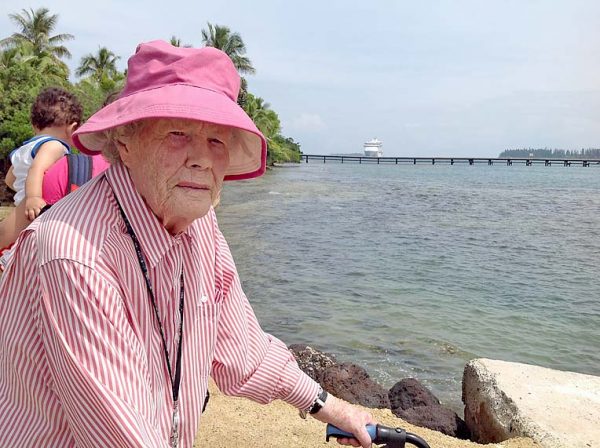
REGARDLESS of age, everyone still seems to be talking about the coronavirus – even 92-year-old Auntie Peg.
“Do not book me on a cruise for Easter,” she joked from her room at an aged care facility.
Like many other aged care facilities, precautions against COVID-19 prevent loved ones from visiting, but a mobile phone enables her to keep in contact with us.
“If you want to do something for me, you can write a note to Easter Bunny – let him know that I’m well and I’m in lockdown.”
Then she laughed.
Auntie Peg’s effervescent personality, attitude and humour are both refreshing and comforting.
She reeled off a list of people to give her love to – Mount Gambier’s Richard Paltridge, Millicent’s Noelene Smith, Lucindale’s Shirley Hocking and Naracoorte’s Colin Tilley, Mary Teakle and Georgie Oldfield.
“There’s not many of our vintage left, but please give them all my love,” she said.
“I’m being looked after very well and I’m washing my hands often.”
Handwashing has been her “thing” for as long as I can remember.
During her working life, each year she enjoyed holidaying on both cruise and cargo ships.
Three years ago I took her on a 14-day cruise to the South Pacific and Fiji.
After wiping down all the surfaces in our cabin with hand sanitiser, like Mary Poppins she pulled a can of Glen 20 disinfectant from her bag to fumigate the room.
“It’s my nursing background,” she said.
In 1943, aged 16, she travelled from the South East to Adelaide to start her nursing career at the Adelaide Children’s Hospital.
“I remember the terrible polio epidemics during summer – there was no cure and no vaccine,” Peg said yesterday by phone.
“Each summer a lot of people stopped their children from using swimming pools, playgrounds and going to the movies.”
Nobody knew what caused polio, or how it was spread.
“In 1946, there was a dreadful polio epidemic – I was about 19 years old,” Peg recalled.
“Parents would bring their sick children to the hospital – we did not have enough beds or wards for them.
“They would be lined up along the corridors, all these sick, paralysed and dying children.”
A 14-year-old girl became Peg’s responsibility in intensive care.
“She was put into what we called an iron lung to help her breathe – her whole body including her neck and chest was paralysed by this wretched polio,” she said.
“We would have to wear aprons and masks to protect ourselves – I do not remember wearing any gloves.
“If adults got the polio, there was an even higher mortality rate.
“Anyway, this lovely young girl with beautiful hair and eyes – she died.
“I took her down to the morgue and it was full of the bodies of these poor children and babies all dead from polio.
“After looking after someone in intensive care or going to the morgue we had to wash up and take our pinafores off.
“I really scrubbed my hands well after delivering this girl to the morgue.
“It was lunch time and I did not feel like eating as I was a bit upset, but I went to the dining room and sat down to be with my nursing friends.
“One of them said to me – ‘did you go to the morgue with that young girl?’ and I said ‘yes’ and she said ‘you have still got your apron on’.
“Well, I was up and out of there like a shot – in all the sadness I’d forgotten.”
It was a further 10 years before a polio vaccine became available.
“So many children were kept indoors and isolated during each epidemic – at least you will not have to wait 10 years for a vaccine for this coronavirus,” Peg said.
“Until then, consider what nurses, doctors, police, ambulance people and carers face every day.
“They do not want this damn virus either – nor their families.
“If you think of them, you will never be sad about lockdowns, handwashing or staying home for Easter and the next few months – you’ll just think of ways to deal with it and keep yourself occupied.”
We have so much to learn from our older citizens.







